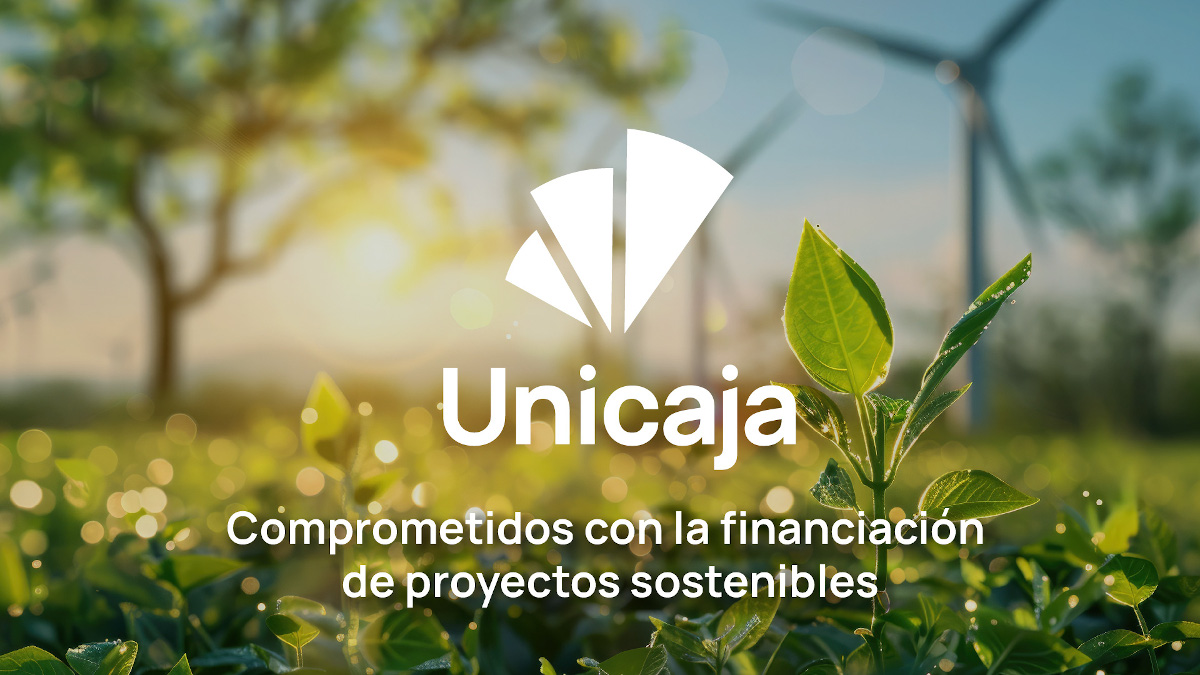Unicaja has issued in the last two years (2022 and 2023) green bonds for a total of 1,300 million euros, which have contributed to avoiding the emission of a total of 54,791 tons of CO2.
To calculate this impact, a methodology based on international standards and guidelines was used, developed by the external consultant Ecodes, ensuring the objectivity and comparability of the data, and DNV was the independent verifier.
The bank’s goal is to contribute financially to the development of a fairer and more inclusive society, supported by an efficient economic management that respects the preservation of the environment, favoring the progressive reduction of CO2 emissions, both its own and those of its customers.
Specifically, in these two years Unicaja has issued three green bonds related to renewable energy and green building projects. The first, a senior preferred green bond, in the amount of 500 million euros, was placed on the market on 30 June 2022, the year in which it also issued the second (senior non-preferred); specifically, on 11 November and for the same amount. On 11 September 2023, a third additional issue was carried out (a senior non-preferred green bond) for 300 million euros.
Green bonds are used to finance or refinance green projects, i.e. investments in sustainable and socially responsible assets in areas such as renewable energies or energy efficiency, among others.
Thus, in the case of Unicaja, eligible projects support the generation of electricity from solar, wind, hydro, geothermal, hydrogen and bioenergy, including the acquisition, construction, operation, maintenance or repowering of facilities.
It also includes actions that promote the acquisition, development and construction of buildings, as well as building renovation projects aimed at improving their energy efficiency (district heating, smart grids or efficient renovation measures).
Unicaja's Green Bond Framework, approved in 2022 and revised in 2024, is aligned with the International Capital Market Association (ICMA) Green Bond Principles (GBP), published in June 2021.
Avoided environmental impact of green bonds
The projects assigned to each of the green bonds issued by Unicaja total 3,277, related to renewable energies and green buildings, for an overall amount of 1,300 million euros and representing an environmental impact of 54,791 tons of CO2 avoided, as well as an annual energy generated of 452,653 megawatt hours and an installed capacity of 623 MWP.
Of these projects, 3,234 are related to green buildings, thus meeting the United Nations Sustainable Development Goals (SDGs) 7 (Affordable and Clean Energy), 11 (Sustainable Cities and Communities) and 13 (Climate Action), and representing an overall amount of 815 million euros and 302 tons of CO2 avoided. In addition to these initiatives, there are 43 initiatives related to renewable energies (SDGs 7 and 13), for 486 million euros.
As for the latter, 32 projects correspond to photovoltaic energy, 9 to solar thermal energy, and 2 to wind power, with a total amount allocated of 486 million and an installed capacity of 623 megawatts, which have enabled the generation of 452,653 megawatt hours per year and the avoidance of emissions equivalent to 54,488 tons of CO2.
Among the projects assigned to Unicaja's green bonds are a thermosolar plant in Badajoz and a photovoltaic park in Plasencia (Cáceres), as well as mortgage financing for housing (development and acquisition), with energy efficiency certificate A.
Commitment to sustainability
Unicaja's commitment to sustainability is reflected in the way it conducts its business, maintaining its ongoing responsibility and attention to the needs of its customers, shareholders, employees and other stakeholders, as well as to the economic, environmental and social demands of the areas and territories in which it operates. In fact, the company's purpose is to help people prosper.
One of the bank's commitments is the integration of sustainability in all its strategic lines. Supporting customers in the energy transition is one of its priorities and, as part of this commitment to green financing, it has developed a complete range of sustainable financing products that contribute to mitigating or adapting to climate change.



